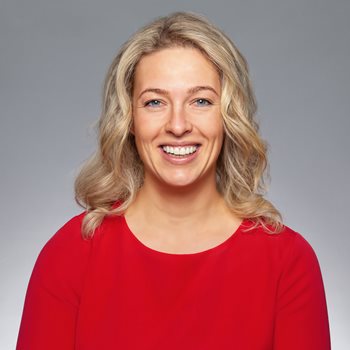
You’ve probably heard “If it is too good to be true, it usually is.” Unless you receive info from a CPA Canada or CPAWSB resource, it is secondary evidence. What does this mean? It means that while the information you have may be comforting (i.e., do x and y to pass), it is not verifiable. In other words, listen to that advice at your own risk.
I promise you if CPAWSB or CPA Canada could confirm specific actions to guarantee success, they would, and it would be shared with you directly, not via some secondary source or unverifiable rumour.
I suggest focusing on relevant information and CPA PEP guidance, including writing and debriefing assignment sets and studying technical material while considering practical tactics and time-saving tools.
Trust, yet verify:
We set goals, we break the goals to sub-goals, we create a plan using available resources, then we execute our plan to the best of our ability. We work the process. If we look for shortcuts now, maybe it works, maybe it doesn’t.
If you decide to gamble and use unvetted sources, get lucky and pass, let me ask you this: When will you start putting in the work, relying on vetted experts, and getting comfortable with uncertainty? When will you decide to start being the professional you want to become?
If you aren’t already on that path, I suggest starting now.
I promise you if CPAWSB or CPA Canada could confirm specific actions to guarantee success, they would, and it would be shared with you directly, not via some secondary source or unverifiable rumour.
Assess the quality of the source
- Is this information directly from CPAWSB or CPA Canada?
- If so, it is verifiable and reliable.
- Is there a conflict of interest or incentive from the source?
- Someone benefiting from providing the advice does not necessarily mean it is “bad” advice, but understanding their motivation provides additional context.
- Does the source link to CPAWSB or CPA Canada information?
- If so, this should give you comfort that you are using verifiable and reliable information.
Why you shouldn’t listen to rumours?
We only have so much time and energy. Ask yourself whether your time is well spent listening to or seeking guidance that may feel comforting, but is not verifiable. What is the risk? When listening and acting based on unsubstantiated hear-say (rumours) or outdated information, you risk unfavourable results and negatively impacting your self-confidence when you realize your mistake.I suggest focusing on relevant information and CPA PEP guidance, including writing and debriefing assignment sets and studying technical material while considering practical tactics and time-saving tools.
Beware the well-intentioned source
If the information comes from someone who is not quoting a primary source but is someone who you aspire to be and who is without conflict of interest, I ask you to do one more thing:Trust, yet verify:
- Direct technical questions and questions about module success to the discussion board. It is monitored by CPAWSB and senior policy officials. You can consider the discussion board a primary source.
- Direct registration questions to [email protected].
Professional judgment
Our value as CPAs is not our ability to add large strings of numbers or multiply by a fraction. Instead, our value comes from being comfortable assessing new and complex situations, breaking down the problems, analyzing those problems, concluding and advising, all while being effective communicators and ensuring our CPA mindset is in place.Real-life: There are no assurances
In a professional program, we develop professionals, which includes coaching candidates to continue to build their professional judgement. There are no certainties (i.e. if I do ‘x’ I will get ‘y’) so any exam built on certainties would not develop the type of professionals who are able to be proficient CPAs.Start now
You simply can’t say “I will learn this later after I pass the exam”. Instead, learning how to sit with uncertainty, to put yourself in the best position given the available information, and to maximize your opportunity within that moment is part of becoming a CPA.We set goals, we break the goals to sub-goals, we create a plan using available resources, then we execute our plan to the best of our ability. We work the process. If we look for shortcuts now, maybe it works, maybe it doesn’t.
If you decide to gamble and use unvetted sources, get lucky and pass, let me ask you this: When will you start putting in the work, relying on vetted experts, and getting comfortable with uncertainty? When will you decide to start being the professional you want to become?
If you aren’t already on that path, I suggest starting now.
Do you have feedback on this post or a question you’d like answered by an experienced CPAWSB educator? Please contact your facilitator or send a question to the General Topic in the Candidate Discussion forum.

Samantha Taylor, PME, CPA, CA, is an educator and lead policy advisor for CPAWSB and a Senior Instructor of accounting at Dalhousie University. She is on a mission to understand and enable learner efficacy while eliminating doldrums occasionally associated with accounting education. Read more of Sam’s posts at the CPAWSB blog.






